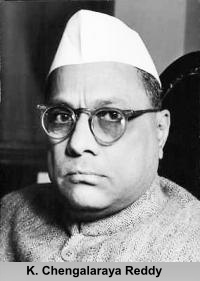 The political landscape of Karnataka has witnessed the leadership of various individuals since India became independent from colonial rule in 1947. The role of Chief Minister in the state is pivotal, holding the responsibility of steering the administrative machinery and implementing policies for the welfare of the populace. Post-Independence, Karnataka, then known as Mysore State, saw its first Chief Minister in the form of K. Chengalaraya Reddy, who assumed office in 1947. Over the years, the state has experienced shifts in political dynamics, with leaders from various parties taking charge of the Chief Minister`s office.
The political landscape of Karnataka has witnessed the leadership of various individuals since India became independent from colonial rule in 1947. The role of Chief Minister in the state is pivotal, holding the responsibility of steering the administrative machinery and implementing policies for the welfare of the populace. Post-Independence, Karnataka, then known as Mysore State, saw its first Chief Minister in the form of K. Chengalaraya Reddy, who assumed office in 1947. Over the years, the state has experienced shifts in political dynamics, with leaders from various parties taking charge of the Chief Minister`s office.
Power and Responsibilities:
The Chief Minister of Karnataka is vested with executive powers, overseeing the day-to-day administration and decision-making processes. Their role includes formulating policies, managing state finances, and addressing the diverse needs of the populace. As the head of the government, the Chief Minister plays a crucial role in coordinating with different departments to ensure effective governance.
List of Chief Ministers Since 1947:
Below is a comprehensive list of all the Chief Ministers of Karnataka, their tenures, and their respective political affiliations.
| Chief Ministers | Tenure | Political Party |
| K. Chengalaraya Reddy | 1947 - 1952 | Indian National Congress |
| Kengal Hanumanthaiah | 1952-1956 | Indian National Congress |
| Kadidal Manjappa | 1956 | Indian National Congress |
| S. Nijalingappa | 1956-1958 | Indian National Congress |
| B.D. Jatti | 1958- 1962 | Indian National Congress |
| S. R. Kanthi | 1962 | Indian National Congress |
| S. Nijalingappa | 1962- 1968 | Indian National Congress | Veerendra Patil | 1968-1971 | Indian National Congress |
| Devaraj Urs | 1972-1977 | Indian National Congress |
| Devaraj Urs | 1978- 1980 | Indian National Congress |
| R. Gundu Rao | 1980-1983 | Indian National Congress |
| Ramakrishna Hegde | 1983-1988 | Janata Party |
| S. R. Bommai | 1988-1989 | Janata Party |
| Veerendra Patil | 1989-1990 | Indian National Congress |
| Sarekoppa Bangarappa | 1990-1992 | Indian National Congress |
| M. Veerappa Moily | 1992-1994 | Indian National Congress |
| H. D. Deve Gowda | 1994-1996 | Janata Dal |
| J. H. Patel | 1996-1999 | Janata Dal |
| S. M. Krishna | 1999-2004 | Indian National Congress |
| N. Dharam Singh | 2004-2006 | Indian National Congress |
| H. D. Kumaraswamy | 2006-2007 | Janata Dal (Secular) |
| B. S. Yediyurappa | 2007 | Bharatiya Janata Party |
| B. S. Yediyurappa | 2008-2011 | Bharatiya Janata Party |
| D. V. Sadananda Gowda | 2011-2012 | Bharatiya Janata Party |
| Jagadish Shettar | 2012-2013 | Bharatiya Janata Party |
| Siddaramaiah | 2013-2018 | Indian National Congress |
| H. D. Kumaraswamy | 2018-2019 | Janata Dal (Secular) |
| B. S. Yediyurappa | 2019 - 2021 | Bharatiya Janata Party |
| Basavaraj Bommai | 2021 - 2023 | Bharatiya Janata Party |
| Siddaramaiah | 2023 (Incumbent) | Indian National Congress |






